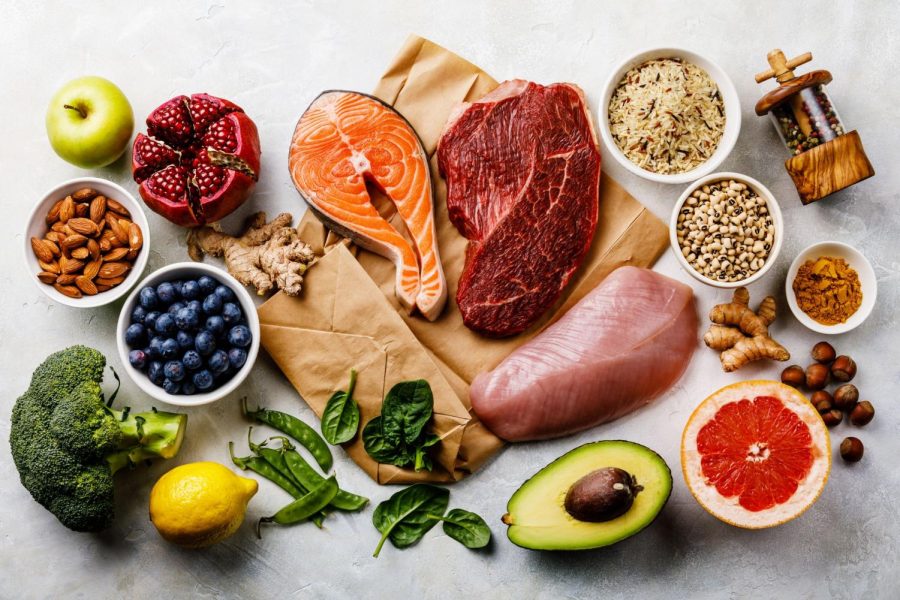Healthy Eating Shapes Our Mental Health
November 3, 2020
Mental health has been a major concern for many of us during what seems to be a never-ending global outbreak. As a result, we forget the significance of healthy eating or eating in general. Many of us jump out of bed minutes before the first virtual class of the day and we forget to grab ourselves breakfast, the most important meal of the day. Little do we all know that skipping the first meal of the day can put our school performance and work habits in jeopardy. Regardless of your athletic status, eating breakfast should be every student’s morning priority.
There is not a single doubt that mental health all depends on our eating habits. If we lack proper nourishment or essential nutrients in our diets, we are not only failing to protect our bodies but also deteriorating our physical and mental performance. During times where we now confine ourselves in our bedrooms, it is often difficult for many of us to scurry out of bed and treat ourselves to fresh, nutritious meals. However, the solution to taking a new route to healthy habits all relies on our decisions to make the difference.
Many of us often overlook the importance of balancing nutrients in our diets. When taught in elementary school the fundamental nutrients vital in our diets, we disregarded and neglected the important messages incessantly echoed by our health instructors. As a result, many of us have geared towards the unhealthy mindset of skipping meals and consuming rashly.
Every meal should be well-balanced—vegetables should be the majority on the plate while fats/extras should be the minority. We must be heedful of the choices we make on our breakfast, lunch, and dinner plates. Mrs. Liza Tedford, one of AHS’ dance directors, agrees that we must spread out the calories and nutrients throughout the day with good carbs, high-quality fats, and other essentials. However, she also pinpointed the importance of vitamins and minerals in water and our fruits and vegetables.
“You want to make sure you get your vitamins and minerals through food because that is the best way to get it. However, if you happen to not have resources for high-quality whole foods, then maybe you need a vitamin supplement. Then, of course, water. And finally spreading out the nutrients throughout the day to fuel a healthy mindset,” she said.
“Whenever you are running out of time in the mornings to cook yourself a wholesome meal, quick whole eggs can help increase your ability to focus. So, having a hard-boiled egg or a poached egg in the mornings every day is the smartest thing you can do for yourself. And if you really don’t like the hard-boiled eggs, you can mix it in with avocados,” said Mrs. Tedford.
Caffeine has become an alarming addiction among teenagers and adults. The drug helps keep many of us wide-awake in the mornings.
“The things you want to avoid are drinking too much caffeine. That can be an issue. That can deplete your level of focus because caffeine pulls water out of the muscles. Your brain and organs are all muscles that function with the presence of water,” she emphasized.
Lastly, there is a major concern among the teen community where many young girls and boys are idolizing skinny and slim bodies as the ideal example of beauty and confidence. Such myths and peer pressure give rise to many teens desiring to become the skinny example that society idolizes. Weight obsession has been a common, misleading disorder in teens, specifically, adolescent girls, while teenage boys have body image concerns.
The health myth, “dieting is healthy for you,” has been around as the number one misconception of healthy eating. Many of us might believe that dieting is the right choice to make in terms of losing or maintaining our weight. However, Mrs. Tedford condemns the idea of dieting.
“Dieting is really dangerous. It sends your body into a state of crisis. And it all really depends on what your doctors recommend in the first place, so eat well, exercise, and drink water regularly. But if you do decide to diet, losing more than two pounds a week is just plain dangerous. It’s hard on your system,” she said.
We are what we eat. This statement is as valid as it sounds. Neglecting the idea of feeding ourselves with healthy, nutritious meals daily can threaten our development and mental health. As students, we must all consider that our choices in life and even in the food we eat shape the way we function, learn, and develop healthy mindsets.
Photo courtesy of VERYWELLFIT.COM

